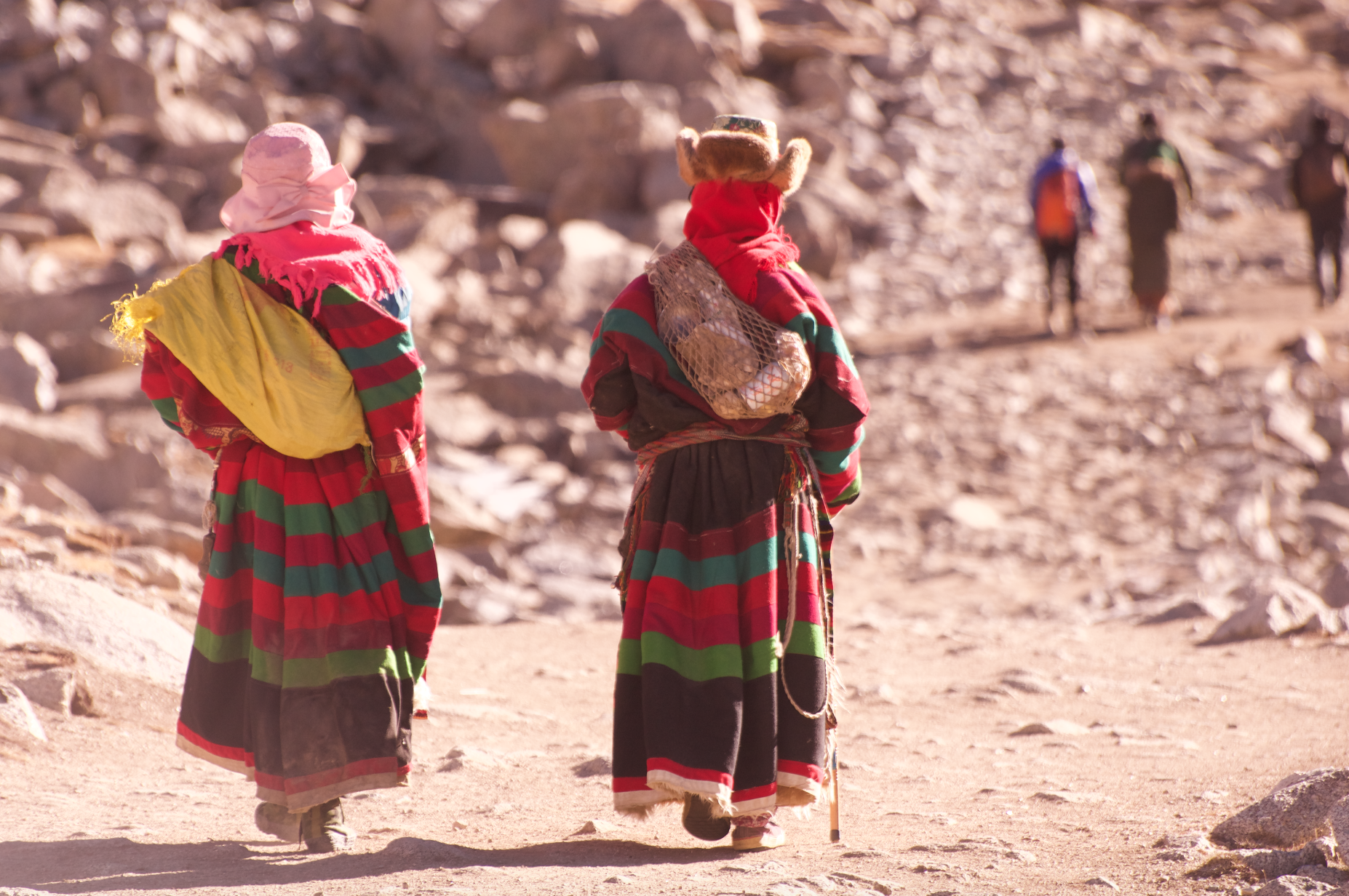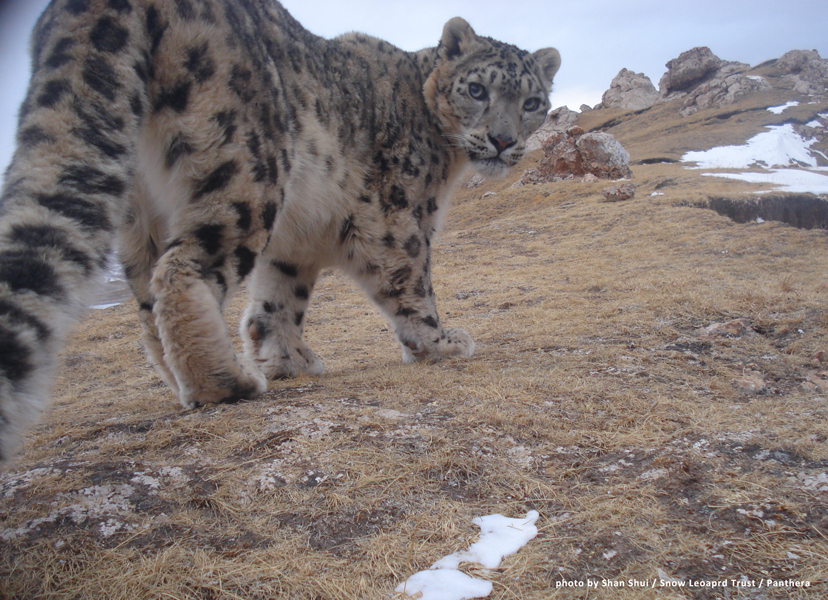
Across the range, snow leopards and people share space. Engaging with local communities is essential for snow leopard conservation. Community based programmes tend to engage with men largely due to social norms and existing power structures. This often results in excluding women, who are important stakeholders and form almost 50% of the adult population, from conservation action and decision making.
In this webinar, we explore how to better engage women in conservation programs across the snow leopard landscape. We hear examples from existing programs that specifically target women and discuss how conservation programs can themselves shift social norms around gender equality (positively or negatively). We also examine the key role of policy in transforming community based programs through incorporating gender sensitive approaches.
We will be hearing from conservationists across the snow leopard range- Bayara Agvantsaaren, Dr. LuZhi and Rashmi Singh– who are working at different levels to engage women in snow leopard conservation. Each of them will highlight a particular aspect of their work that highlights the opportunities and challenges in promoting women’s role in community based conservation. Dr. Charudutt Mishra, the Executive Director of the Snow Leopard Trust, will facilitate the panel discussion. Charu has been a pioneer in community based conservation and brings a special perspective around how to make a difference at the ground level.
We hope to see you, all members both men and women, at this very special webinar and look forward to drawing on your experiences and insights during the discussion. This webinar is Part 1 of a Webinar Series focussing on the role of women in snow leopard conservation and science.
About the Webinar
Opening the webinar we first hear from the panelists, each with a five-minute presentation, where they set the context of their work and highlight key issues. This will be followed by the panel discussion facilitated by Dr. Charudutt Mishra for twenty minutes focusing on opportunities and identifying strategies and priorities for engaging women in conservation programmes. This will be followed by an open interaction with the audience.
 About our Guests
About our Guests
 Bayara Agvantsaaren is the Executive Director of Snow Leopard Conservation Foundation and Mongolia Program Director, at the Snow Leopard Trust. “I have been working as a snow leopard conservationist since 1998 when I co-found Snow Leopard Enterprises Program which offers income generation to women rural herders who share mountain with these elusive cats. It has been amazing 20+ years career journey to work with different aspects of conservation. I am privileged to be able to help both snow leopards and local people.” shares Bayara.
Bayara Agvantsaaren is the Executive Director of Snow Leopard Conservation Foundation and Mongolia Program Director, at the Snow Leopard Trust. “I have been working as a snow leopard conservationist since 1998 when I co-found Snow Leopard Enterprises Program which offers income generation to women rural herders who share mountain with these elusive cats. It has been amazing 20+ years career journey to work with different aspects of conservation. I am privileged to be able to help both snow leopards and local people.” shares Bayara.
 Professor Lu Zhi is a conservation biologist in China whose work covers multiple-disciplinary researches and bridging academic research and practices, in order to seek solutions for conservation and sustainable development in China and to promote China’s positive role in the world. She has studied ecology and conservation of endangered species in southwest China and on the Tibetan Plateau, such as the giant panda, the snow leopard, the blue sheep, the Tibetan brown bear and the Przewalski gazelle, as well as their interactions with human activities. In recent years, she focuses on mechanisms of coexistence between human and nature. She leads conservation initiatives on community-led conservation and citizen sciences in both rural and urban contexts based on economic incentives, cultural values and policy improvements. She involved in conservation policy making at regional and national levels, and is an active member of international conservation discussions.
Professor Lu Zhi is a conservation biologist in China whose work covers multiple-disciplinary researches and bridging academic research and practices, in order to seek solutions for conservation and sustainable development in China and to promote China’s positive role in the world. She has studied ecology and conservation of endangered species in southwest China and on the Tibetan Plateau, such as the giant panda, the snow leopard, the blue sheep, the Tibetan brown bear and the Przewalski gazelle, as well as their interactions with human activities. In recent years, she focuses on mechanisms of coexistence between human and nature. She leads conservation initiatives on community-led conservation and citizen sciences in both rural and urban contexts based on economic incentives, cultural values and policy improvements. She involved in conservation policy making at regional and national levels, and is an active member of international conservation discussions.
 Rashmi Singh is a PhD Scholar at the School of Human Ecology, Ambedkar University and Associate Editor for Pastoralism– research, policy and practice Journal. Her PhD work explores the politics of rangeland conservation in the Himalaya using an interdisciplinary approach. Her primary research interest includes disciplines of pastoral studies, rangeland conservation and animal geography. In the last nine years, she has worked extensively on the social dimensions of wildlife conservation across India. Her ongoing research has highlighted the importance of including pastoralists in the policy formulation, wildlife conservation, and management of rangelands. She is intrigued by the pastoral indigenous knowledge system and believes that long term regional studies are crucial for reconciling pastoral livelihood and rangeland conservation goals.
Rashmi Singh is a PhD Scholar at the School of Human Ecology, Ambedkar University and Associate Editor for Pastoralism– research, policy and practice Journal. Her PhD work explores the politics of rangeland conservation in the Himalaya using an interdisciplinary approach. Her primary research interest includes disciplines of pastoral studies, rangeland conservation and animal geography. In the last nine years, she has worked extensively on the social dimensions of wildlife conservation across India. Her ongoing research has highlighted the importance of including pastoralists in the policy formulation, wildlife conservation, and management of rangelands. She is intrigued by the pastoral indigenous knowledge system and believes that long term regional studies are crucial for reconciling pastoral livelihood and rangeland conservation goals. 
Date/Time
Tuesday, September 21st, at 17:00-18:15 Bishkek time
Location
We regret to inform you that this Webinar has been postponed until further notice
Please note
-
- If you have never used Zoom before, we recommend that you try the link 10 minutes before the start of the lecture.
- Please feel free to write questions in the comment area and there will be time for questions/discussion at the end of the talk.
- Please note that the session will be recorded and later featured on the SLN website. If you have concerns about this please let us know before the session.

